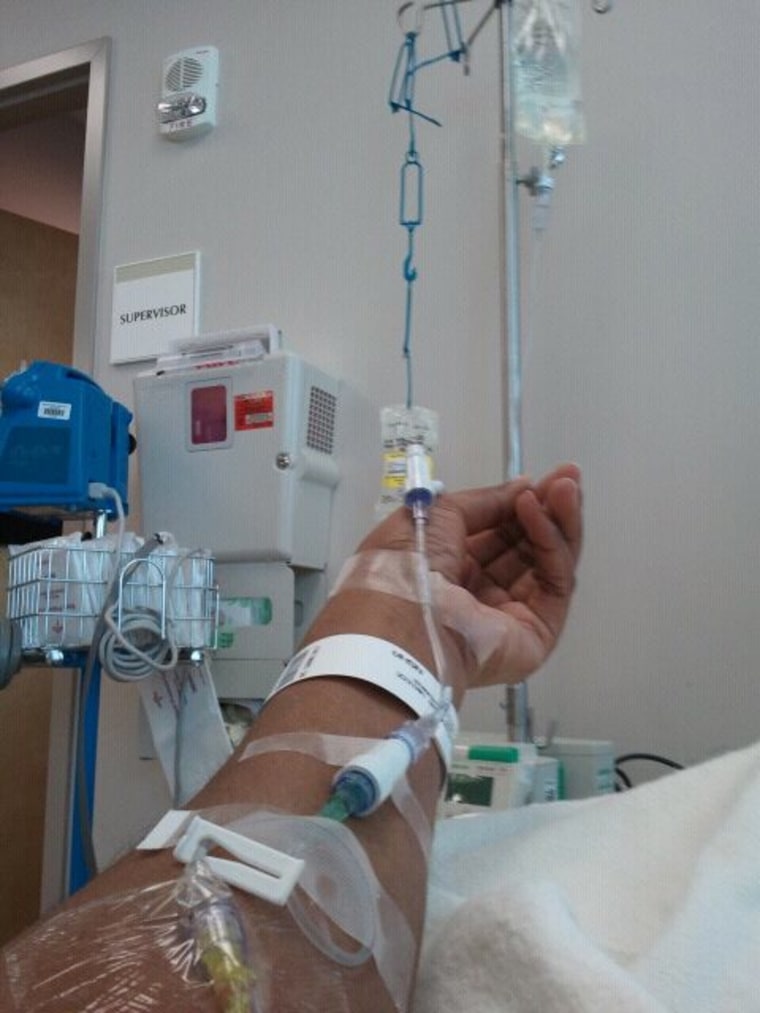I remember it like it was yesterday, even though it’ll be four years ago next month.
Exhausted from all night feedings with my newborn son, I was fast asleep on the couch on a Friday night when my best friend called. She was sitting in her car in the parking lot of an urgent care facility near Atlanta, panic was evident in her voice.
The doctor, a veteran OB/GYN who happened to be filling in, had gone out (way out) on a limb and predicted outright that she had cancer – advanced cancer, in fact. He advised her to seek a second opinion immediately.
“I don’t know what to do,” she wailed, as I, bleary-eyed and speechless, sat on the other end of the line, unsure of what to say. It was a helpless feeling.
The next day, I left my baby (for the first time ever in his life) with my mother to accompany her to the emergency room of the local hospital known for indigent care. Jennifer had previously enjoyed a successful career working with some of the biggest athletes and entertainers in the country, but she had just started a new, more modest job. Her benefits wouldn’t officially kick in for two more weeks.
We sat in that waiting room for about eight hours straight. Ironically, the only thing that helped pass the time was the broadcast of singer Whitney Houston’s memorial service on TV most of the day. Silently we watched the star-studded affair, hoping it was not foreshadowing what was to come for my BFF. Unfortunately, it was.

While Whitney’s untimely death, was tragic and swift, Jennifer’s 18-month battle was excruciatingly slow, arduous and emotionally and physically debilitating. A week would pass before we received the official news that she did, in fact, have advanced small cell cervical cancer, one of the most aggressive forms. Based on the reaction we got from the medical team in the exam room that evening though, we both already knew that the biggest fight of her life was already underway.
January is Cervical Health Awareness Month and as it nears a close, I feel impelled to raise awareness, especially among those of us in the African American community who, like me until this happened, are uninformed or simply too distracted with the roller coaster of life to concern themselves with the details of a condition that could lead to an untimely and, more importantly, unnecessary death.
Jennifer was like many of my fellow African American sisters – brilliant, bodacious, beautiful and always so busy tending to others and trying to keep her own head above water that her own needs were consistently neglected.
Jennifer was like many of my fellow African American sisters – brilliant, bodacious, beautiful and always so busy tending to others and trying to keep her own head above water that her own needs were consistently neglected. It cost her, her life.
She’s not alone. According to the Black Women’s Health Imperative (BWHI), a national nonprofit organization that focuses on advancing the health and wellness of Black women and girls in the U.S, cervical cancer affects more than 11,000 women worldwide annually. Of the close to 2,000 black women diagnosed with it each year, more than 40 percent will die.
Although cervical cancer occurs most often in Hispanic women, black women tend to have lower five-year survival rates and we die more often than any other race. Black women have twice the cervical cancer mortality rate as compared to white women.

Unfortunately knowledge is not always empowering us to harness the God-given power we all have within us to be more proactive about our health. According to BWHI research, most black women are familiar with how cervical cancer is caused and that it is preventable, yet we are still dying at a disproportionately higher rate.
Don’t get it twisted:
- Cervical cancer is almost always caused by genital human papillomavirus (HPV), an infection so common that nearly all sexually active men and women get it at some point in their lives. In most cases it goes away on its own, but cancer and other health problems develop when it doesn’t.
- Cervical cancer is one of the most preventable types of cancer of all.
- Cervical cancer can be detected with routine Pap tests.
Losing my closest girlfriend and confidante before the age of 40 and before we had a chance to “Drop It Like It’s Hot,” “Wobble” and “Cupid Shuffle” ourselves dizzy at another birthday celebration that I most certainly would have planned, has been heartbreaking.
Even worse is knowing that her stressful life and lack of health insurance likely kept her from seeking medical attention for longstanding symptoms. I wish I’d done more to help.
My fellow sisters (and those who love us) need to know that when left undetected and untreated, cervical cancer wreaks havoc on – and ultimately destroys – lives, depriving us all of many phenomenal women like Jennifer.
Don’t take the chance. Get Pap exams every year and check in with your friends, family members, classmates, church mates, heck even coworkers, to make sure they’re doing so too. Ask specifically for an HPV test and always follow up with a doctor about any lingering symptoms.
In the words of the illustrious rapper Ice Cube,: “Check yo self before you wreck yo self!”
If you won’t do it for yourself, please do it for Jen.

